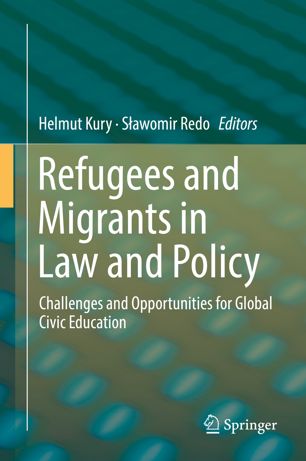 |
Veronika Nagy – Klára Kerezsi (eds.): A Critical Approach to Police Science New Perspectives in Post-Transitional Policing Studies |
The social, economic and technological developments of the late modern society have radically changed policing approaches both at national and supranational levels. With the anti-terrorism discourse and the global crises of mobilities, the security needs of citizens is now at the pinnacle of government priorities. At the same time, traditional law enforcement faces an epistemological crisis through the digitalisation and privatization of security. Governments, and especially the police, are expected to either prevent or respond to security threats, and if necessary, to ensure order through rigorous measures. The traditional means of policing, however, is met with increasing difficulties to sustain their legitimacy on all fronts.
Regarding the current subject of public security, several challenges can be identified. The shifting relationship between organizational and management rules between the state and other governing bodies, the use of new technologies, and the fusion of different security units, such as intelligence services, the military, and the police, all contribute to new tensions in policing practices. These changes urge the need of a reflective policing science and the adaptation of existing theoretical approaches. Although several conceptual differentiations are made between policing practices, hardly any theoretical studies discuss the implication of current contextual differences between traditional welfare states and post-transitional societies.
This book provides a critical interdisciplinary approach through contextualized thematic analyses of policing practices after the digital turn. All topics are discussed from different conceptual perspectives, and will assess how digitalization, global threats and privatization have changed traditional policing approaches.
While challenging existing theoretical approaches in Anglo-Saxon policing studies, this editorial volume aims to promote critical law enforcement studies and the need for more empirical research and new conceptual methodologies in a digitized society.
[Eleven International Publishing, 2020, ISBN: 978-94-6236-887-3
https://www.boomdenhaag.nl/en/webshop/a-critical-approach-to-police-science]
♦♦♦♦♦♦
 |
Helmut Kury – Sławomir Redo (eds.): Refugees and Migrants in Law and Policy Challenges and Opportunities for Global Civic Education |
Refugees and migration are not a new story in the history of humankind, but in the last few years, against a backdrop of huge numbers of migrants, especially from war-torn countries, they have again been a topic of intensive and contentious discussion in politics, the media and scientific publications. Two United Nations framework declarations on the sustainable development goals and on refugees and migrants adopted in 2016 have prompted the editors – who have a background in international criminology – to invite 60 contributors from different countries to contribute their expertise on civic education aspects of the refugee and migrant crisis in the Global North and South. Comprising 35 articles, this book presents an overview of the interdisciplinary issues involved in irregular migration around the world. It is intended for educationists, educators, diplomats, those working in mass media, decision-makers, criminologists and other specialists faced with questions involving refugees and migrants as well as those interested in improving the prospects of orderly, safe, regular and responsible migration in the context of promoting peaceful and inclusive societies for sustainable development.
Rather than a timeline for migration policies based on “now”, with states focusing on “stopping migration now”, “sending back migrants now” or “bringing in technicians or low-skilled migrant workers now”, there should be a long-term strategy for multicultural integration and economic assimilation. This book, prefaced by Francois Crépeau, the United Nations Special Rapporteur on the human rights of migrants, and William Lacy Swing, Director-General of the International Organization for Migration, addresses the question of the rights and responsibilities involved in migration from the academic and practical perspectives of experts in the field of social sciences and welfare, and charts the way forward to 2030 and beyond, and also beyond the paradigm of political correctness.
[Springer, 2020, ISBN: 978-3-319-72158-3
https://link.springer.com/book/10.1007/978-3-319-72159-0]
____________________________
Reviews:
István Tarrósy:
Helmut Kury and Slawomir Redo (eds.): Refugees and Migrants in Law and Policy
Challenges and Opportunities for Global Civic Education
Pécs Journal of International and European Law, 2020/I.
http://ceere.eu/pjiel/?book=vol-2020-i
Stauber Péter: Mi a baj a migrációval?
Belügyi Szemle, 2019/12., p. 121–124
https://belugyiszemle.hu/hu/belugyi-szemle-fooldal
♦♦♦♦♦♦
This edited volume traces the rise of far right vigilante movements – some who have been involved in serious violence against minorities, migrants and other vulnerable groups in society, whereas other vigilantes are intimidating but avoid using violence. Written by an international team of contributors, the book features case studies from Western Europe, Eastern Europe, North America and Asia. Each chapter is written to a common research template examining the national social and political context, the purpose of the vigilante group, how it is organized and operates, its communications and social media strategy and its relationship to mainstream social actors and institutions, and to similar groups in other countries. The final comparative chapter explores some of the broader research issues such as under which conditions such vigilantism emerges, flourishes or fails, policing approaches, masculinity, the role of social media, responses from the state and civil society, and the evidence of transnational co-operation or inspiration. This is a groundbreaking volume which will be of particular interest to scholars with an interest in the extreme right, social movements, political violence, policing and criminology.
[Routledge, 2020, ISBN 9781138493926
https://www.routledge.com/Vigilantism-against-Migrants-and-Minorities-OPEN-ACCESS/Bjorgo-Mares/p/book/9781138493926]
Download: https://doi.org/10.4324/9780429485619
♦♦♦♦♦♦
 |
Andrea Tünde Barabás (Ed.): |
The perception of insecurity is an important problem for today’s European societies. This is especially true of large cities, where a large proportion of the population live and therefore where the problems are concentrated.
The basic need of individuals and communities is to feel safe in the places of their everyday lives. The image of security is shaped by a number of factors, such as fear of crime, possible previous victim experiences, the quality of the living environment, the orderliness of the neighbourhood and transparent and illuminated spaces as well as a predictable economic environment, fear of unemployment and illness, social relations, or even a marginalized social situation.
The need for security is becoming ever stronger nowadays, while globalization challenges the authorities and citizens alike in new previously unknown situations.
This is a book dealing with one of the most urgent and most controversial issues for European countries, by addressing the questions related to the perception of insecurity among the populations of big cities.
[National Institute of Criminology, Budapest, 2018, p. 202, ISBN: 978-963-7373-25-1]




